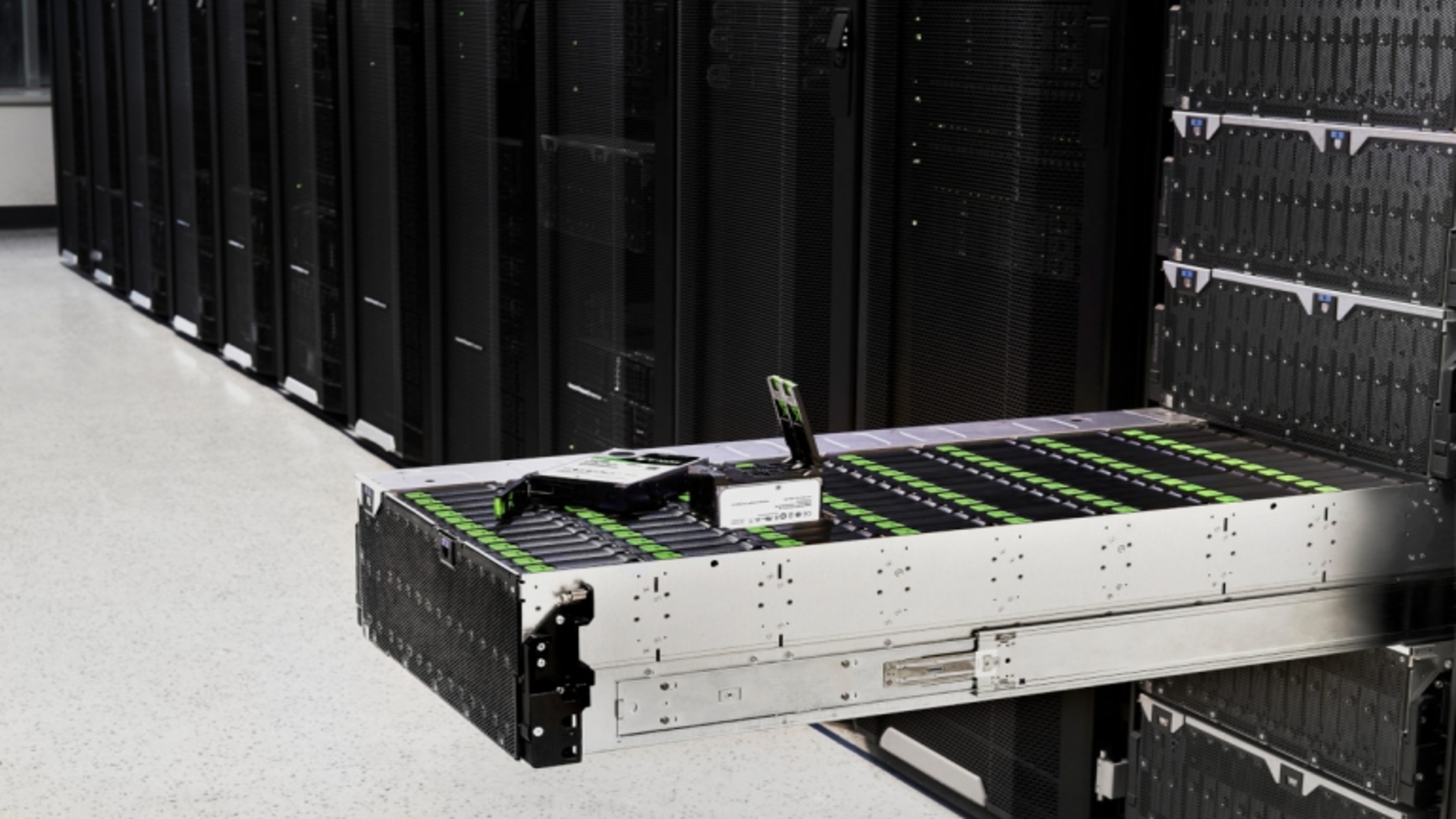Top Stories
Seagate Unveils Exos 4U100: 3.2PB Storage for AI Workflows

UPDATE: Seagate has just unveiled its groundbreaking Exos 4U100, a storage solution boasting a staggering 3.2 petabytes capacity. This cutting-edge technology is specifically designed to meet the escalating demands of artificial intelligence (AI) and machine learning (ML) workflows, making it a game-changer for data centers and edge environments.
Seagate’s new system leverages its Mozaic HAMR technology to offer unparalleled density and durability. This innovative technology enhances data throughput while significantly reducing power consumption, achieving 30% less power use compared to previous models. With the ability to handle continuous data ingestion, the Exos 4U100 is engineered for environments where data is generated and processed outside traditional cloud systems.
The urgency of this launch cannot be overstated. As businesses increasingly rely on AI-driven workflows that require rapid data analysis and processing, the Exos 4U100 stands out as a critical solution. It supports essential functions such as model checkpointing and long-term data retention—features vital for organizations striving to keep pace with technological advancements.
Seagate’s Melyssa Banda, SVP of Edge Storage and Services, emphasized the importance of this advancement, stating,
“The Seagate Exos 4U100 JBOD marks the beginning of a bold new chapter in edge storage innovation—engineered to meet the evolving demands of data creation, storage, replication, and analysis at the edge.”
The Exos 4U100 is also designed with security in mind. It incorporates features like secure boot and Redfish management, ensuring protection against unauthorized access as data sovereignty regulations continue to evolve. This focus on security is crucial in today’s landscape, where data privacy is a top priority for organizations globally.
Moreover, this new enclosure achieves 70% more efficient cooling, making it a sustainable choice for high-demand environments. However, efficiency claims will depend heavily on real-world workloads and the system’s stability under sustained operations.
As the industry shifts toward hybrid approaches in storage, the Exos 4U100 solidifies Seagate’s commitment to mechanical storage’s relevance, even as solid-state drives (SSDs) and flash technologies gain traction. This launch arrives at a critical time, as companies are challenged to maintain efficiency and security across diverse storage layers while managing ever-increasing data volumes.
In the coming weeks, technology experts and industry leaders will be watching closely to see how the Exos 4U100 performs in real-world applications and whether it can effectively support the growing needs of AI and ML infrastructures.
For businesses aiming to leverage AI capabilities, the Exos 4U100 could be the pivotal element in their data strategies. Stay updated with the latest developments by following credible sources and tech news outlets.
-

 Science1 month ago
Science1 month agoIROS 2025 to Showcase Cutting-Edge Robotics Innovations in China
-

 Lifestyle1 month ago
Lifestyle1 month agoStone Island’s Logo Worn by Extremists Sparks Brand Dilemma
-

 Health1 month ago
Health1 month agoStartup Liberate Bio Secures $31 Million for Next-Gen Therapies
-

 Science2 weeks ago
Science2 weeks agoUniversity of Hawaiʻi at Mānoa Joins $25.6M AI Initiative for Disaster Monitoring
-

 World1 month ago
World1 month agoBravo Company Veterans Honored with Bronze Medals After 56 Years
-

 Politics4 weeks ago
Politics4 weeks agoJudge Considers Dismissal of Chelsea Housing Case Citing AI Flaws
-

 Lifestyle1 month ago
Lifestyle1 month agoMary Morgan Jackson Crowned Little Miss National Peanut Festival 2025
-

 Health1 month ago
Health1 month agoTop Hyaluronic Acid Serums for Radiant Skin in 2025
-

 Science1 month ago
Science1 month agoArizona State University Transforms Programming Education Approach
-

 Sports1 month ago
Sports1 month agoYamamoto’s Mastery Leads Dodgers to 5-1 Victory in NLCS Game 2
-

 Top Stories1 month ago
Top Stories1 month agoIndonesia Suspends 27,000 Bank Accounts in Online Gambling Crackdown
-

 Business1 month ago
Business1 month agoTruist Financial Increases Stake in Global X Variable Rate ETF









